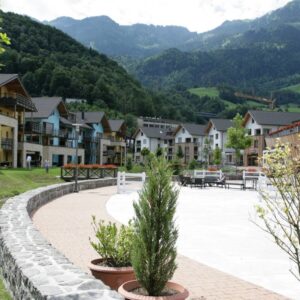
Introduction
Agricultural activities have often been viewed as having a negative impact on the environment, leading to deforestation, loss of biodiversity, and pollution. However, farm homestays offer a unique opportunity to promote conservation efforts and sustainable practices. In this article, we will explore how farm homestays contribute to conservation efforts and the benefits they bring to the environment.
Promoting Biodiversity
Many farm homestays are nestled in rural areas with rich biodiversity. By opening up their lands to guests, farmers can promote the preservation of natural habitats and wildlife. Unlike traditional agricultural practices that may involve the use of chemical pesticides and monoculture, farm homestays often adopt organic farming methods that support a diverse range of plant and animal species.
-
- For example, a study conducted by the University of California, Berkeley found that farm homestays in Costa Rica led to the preservation of biodiversity, attracting ecotourists who were interested in observing the rich flora and fauna of the region.
-
- In addition, the practice of agroforestry, which combines agriculture and forestry, is commonly seen in farm homestays. This promotes the growth of diverse tree species, providing habitats for wildlife and contributing to the overall health of the ecosystem.
Conserving Natural Resources

Farm homestays often place an emphasis on sustainable resource management, including water conservation, energy efficiency, and waste reduction. Guests are encouraged to participate in eco-friendly practices, such as composting food waste, using water sparingly, and consuming locally sourced produce.
-
- For instance, a farm homestay in New Zealand implemented rainwater harvesting systems to reduce their reliance on municipal water sources. This not only conserves water but also reduces the overall environmental impact of the property.
-
- Furthermore, the use of renewable energy sources, such as solar panels and wind turbines, is becoming increasingly common in farm homestays, showcasing their commitment to reducing carbon emissions and promoting sustainable living.
Community Engagement and Education
Farm homestays provide an opportunity for guests to learn about the importance of conservation and the value of sustainable farming practices. Many properties offer educational experiences, such as guided nature walks, farm tours, and workshops on organic gardening and permaculture.
-
- For example, a farm homestay in Italy offers cooking classes using locally sourced ingredients, showcasing the connection between sustainable agriculture and healthy, seasonal eating. This not only supports the local economy but also fosters a greater appreciation for the environment.
-
- Additionally, farm homestays often engage with local communities, supporting small-scale producers and artisans. By purchasing their goods, farm homestays contribute to the preservation of traditional crafts and methods, further promoting the conservation of cultural and natural heritage.
Conclusion
Farm homestays offer a unique platform for conservation efforts, promoting biodiversity, sustainable resource management, and educational experiences. By integrating these practices into their operations, farm homestays play a crucial role in advancing conservation and sustainable tourism. As travelers increasingly seek authentic and meaningful experiences, farm homestays have the potential to make a significant impact on the environment and local communities, paving the way for a more sustainable future.
Get in touch with us via this link if you would like to showcase your farm on Farmlike, or if you would like to book an experience or accomodation at a farm.
 Docs
Docs
 Support
Support




















 Home
Home  Whishlist
Whishlist  Cart
Cart 

















